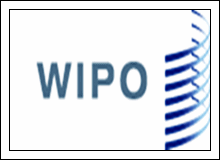World Intellectual Property Organisation (WIPO) is a world renowned name in the field of Intellectual Property Rights (IPRs). It has been actively working in the direction of protecting and strengthening IPRs at the international level.
One of the areas that are covered by WIPO is Patents. In order to ensure adequate and proper patent protection at international level, a Standing Committee on the Law of Patents (SCP) has been formulated at WIPO.
The SPC was created in 1998 and serves as a forum to discuss issues, facilitate coordination and provide guidance concerning the progressive international development of patent law. The Committee is composed by all Member States of WIPO and/or of the Paris Union, and, as observers, certain Member States of the UN non-members of WIPO and/or Paris Union, as well as a number of intergovernmental and non-governmental organisations.
Since its establishment, the SCP has been working on the international harmonisation of Patent law. The main achievement of the SCP in the recent past was the negotiation of the Patent Law Treaty (PLT) and its Regulations on Patent formalities and procedures. The PLT was adopted by a Diplomatic Conference on June 1, 2000 and entered into force on April 28, 2005.
Discussions on the draft Substantive Patent Law Treaty (SPLT) started at the fifth session of the SCP in May 2001. The discussions focus on issues of direct relevance to the grant of patents, in particular, the definition of prior art, novelty, inventive step/non-obviousness, industrial applicability/utility, the drafting and interpretation of claims and the requirement of sufficient disclosure of the invention. The SCP further agreed that other issues related to substantive patent law harmonisation, such as first-to-file versus first-to-invent systems, 18-month publication of applications and a post-grant opposition system, would be considered at a later stage.
During the subsequent SCP meetings, following proposals by a number of delegations, the contents of the draft SPLT has been progressively broadened. While discussions led to some agreement of principle among delegations on a number of issues, other topics have generated more difficulties in terms of reaching agreement.
Recently the SPC has discussed very important issues of public health, technology transfer, and exceptions and limitations to patents. In the meeting held on 16-20 May some consensus regarding these crucial aspects was seen and most countries felt “optimistic about the way forward”. Perry4Law and Perry4Law Techno Legal Base (PTLB) welcome this effort of WIPO and all countries. Let us see how SPC would help in further development and growth of international Patents laws.
